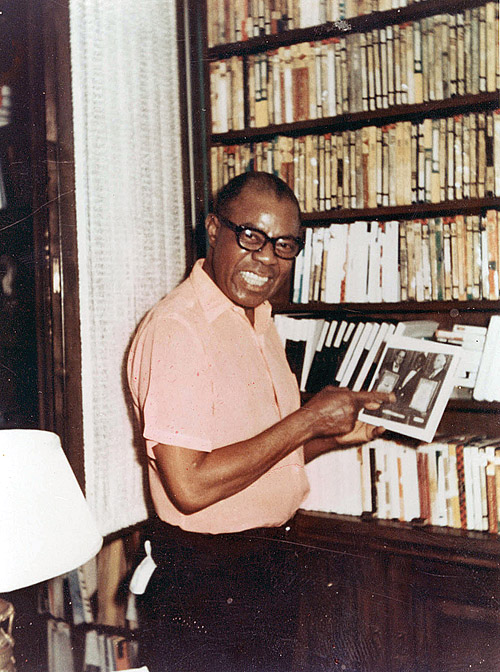“The main problem with Homer & Langley is that it fails to bring the Collyers to fictional life, mainly because Doctorow is unable to supply a dramatically convincing account of how and why they became hermits and compulsive hoarders. Their retreat into the twilight world of madness is simply something that happens bit by bit. Needless to say, this may be what actually happened to them–real life is rarely as neat as art–but it is not the stuff of which compelling novels are made, especially when they’re written in the etiolated, blandly coy prose to which Doctorow has accustomed us…”
Archives for November 3, 2009
TT: Very strange bedfellows
 I’ve been keeping an amused eye on the books, CD, and DVDs purchased by people who order an advance copy of Pops: A Life of Louis Armstrong from Amazon. Some, like The Skeptic, Gary Giddins’ Satchmo, and Robin Kelley’s new biography of Thelonious Monk, seem reasonably plausible. Others are…well, less so.
I’ve been keeping an amused eye on the books, CD, and DVDs purchased by people who order an advance copy of Pops: A Life of Louis Armstrong from Amazon. Some, like The Skeptic, Gary Giddins’ Satchmo, and Robin Kelley’s new biography of Thelonious Monk, seem reasonably plausible. Others are…well, less so.
Here are some of the items that have been paired with Pops on Amazon’s “Customers Who Bought This Item Also Bought” module:
• Brian Kellow’s Ethel Merman: A Life
• Bob Dylan’s Christmas in the Heart
• Kate Summerscale’s The Suspicions of Mr. Whicher: A Shocking Murder and the Undoing of a Great Victorian Detective
• Douglas G. Brinkley’s The Wilderness Warrior: Theodore Roosevelt and the Crusade for America
• Dave Eggers’ Zeitoun
• The Joan Crawford Collection, Vol. 2
• William Maxwell: Early Novels and Stories
• Michael Burleigh’s Blood and Rage: A Cultural History of Terrorism
• Drew Gilpin Faust’s This Republic of Suffering: Death and the American Civil War
• The Letters of Noël Coward
And here’s the weirdest co-purchase of all:
• James Wood’s How Fiction Works
TT: Still more exciting Pops-related news
Amazon.com has chosen Pops as one of the ten best biographies of 2009.
To see the full list, go here.
TT: Almanac
“The canvas had that overly stunning, almost meretricious, quality of originals. The attention they call to themselves as such, to the oils laid on by a vanished hand, overcharge the aesthetic experience for the viewer, who oftener sees a fetish than a picture.”
Peter De Vries, The Blood of the Lamb
